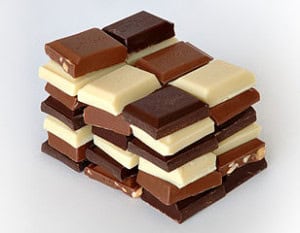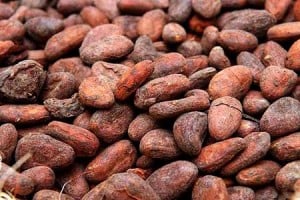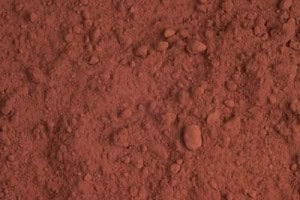
Listen:
Humans have loved chocolate for the past 4,000 years – but did you know that for most of that time, chocolate was most commonly consumed as a beverage? The word “chocolate” itself comes from words meaning “bitter water,” because chocolate was traditionally prepared as a cold, unsweetened drink. The chocolate bar as we know it today has actually existed for less than 200 years.
The history of chocolate begins with the native peoples of the Americas, who cultivated the cacao tree and viewed chocolate as sacred. The Mayas considered cocoa pods symbols of life and fertility, and the Aztecs believed that a god had brought the cacao tree to earth from paradise. Cacao seeds were even used as a form of currency in the 15th century.
Around 1528, chocolate arrived in Spain, where it was mixed with sugar, vanilla, cinnamon, and other spices. Chocolate later began to gain popularity in France as an aphrodisiac, eventually spreading to England, Germany, and Austria. In 1730, advances in the technology for grinding cocoa beans caused the price of chocolate to drop considerably. Finally, the first solid chocolate was invented in 1830 by a British chocolate maker.
There are three main types of chocolate: dark chocolate, milk chocolate, and white chocolate. Dark chocolate in particular benefits the circulatory system. Who eats the most chocolate in the world today? That award goes to the Swiss, who eat on average 25 pounds of chocolate per person per year.
[important]
Vocabulary
beverage = drink
bitter = not sweet
sacred = something special in religion
fertility = ability to have children
paradise = a perfect place
spices = plants that give flavor to food
aphrodisiac = something that increases sexual desire
grinding = process of making something into powder


drop = decrease, go down
circulatory system = heart and blood vessels (arteries and veins)
[/important]






